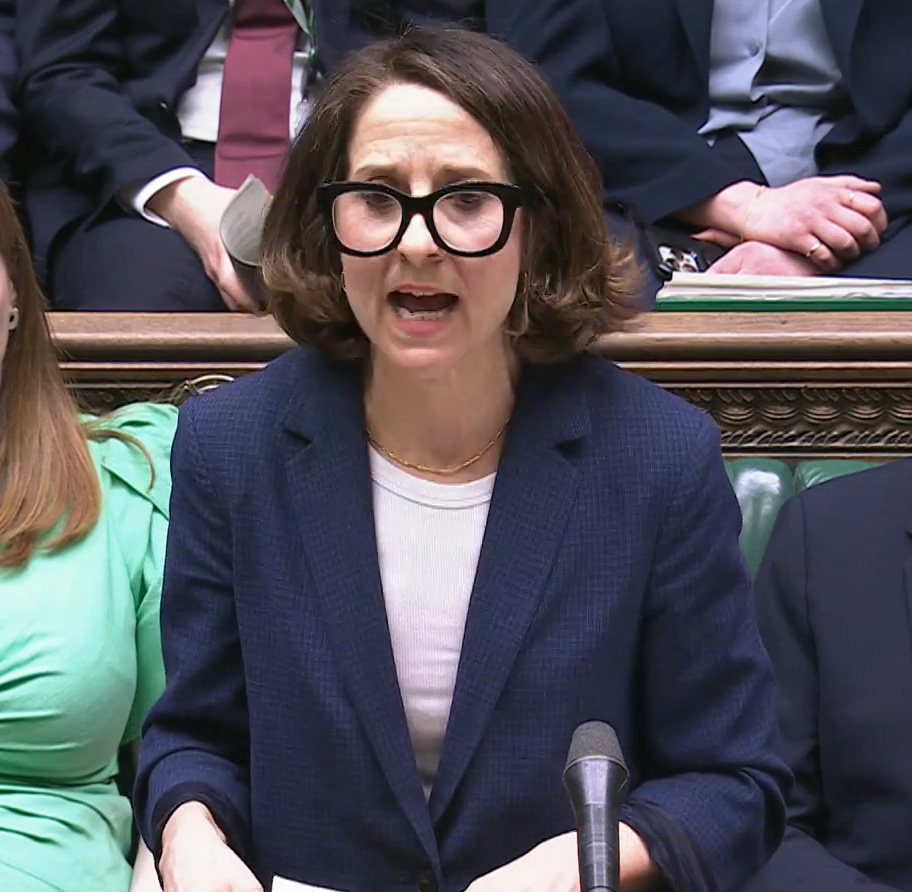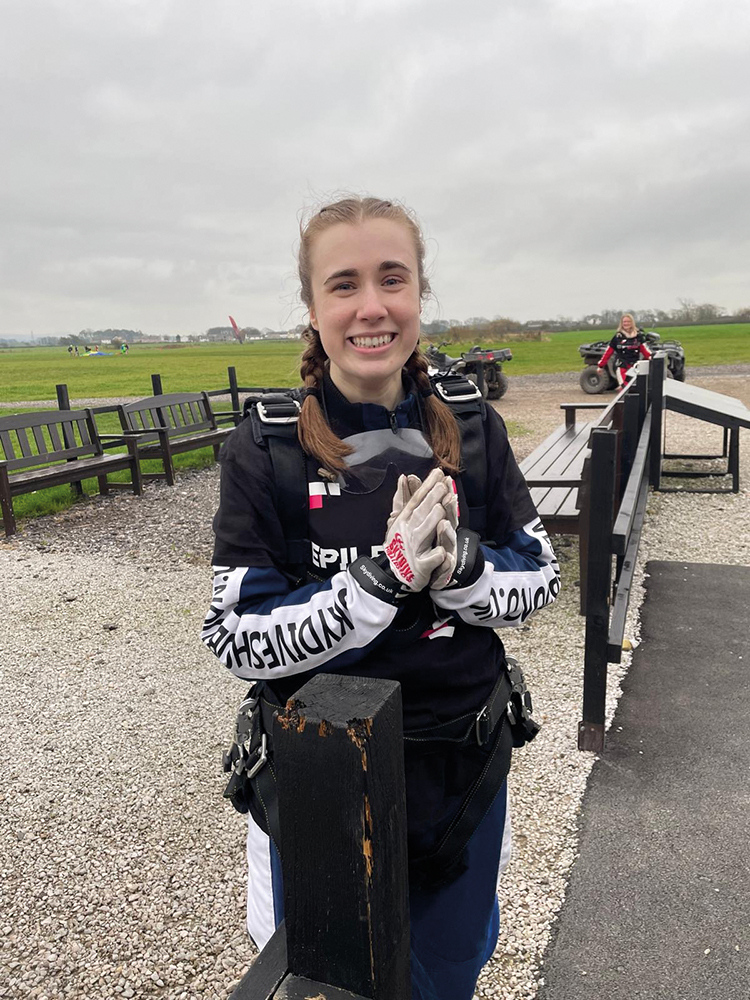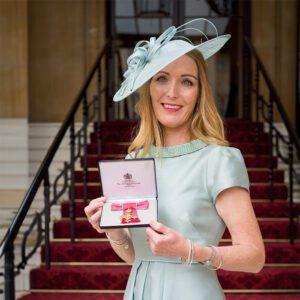 Award-winning activist Paula McGowan OBE has dedicated her life to campaigning for the equality and equity of health and social care for intellectually disabled and autistic people. At the beginning of the year she joined Epilepsy Action as an ambassador.
Award-winning activist Paula McGowan OBE has dedicated her life to campaigning for the equality and equity of health and social care for intellectually disabled and autistic people. At the beginning of the year she joined Epilepsy Action as an ambassador.
“Epilepsy is so poorly understood,” says Paula when we meet over Zoom. She’s currently living in Australia with her husband Tom who is in the RAF. She teaches at a primary school during the day and speaks to charities, health and social care organisations, and politicians in the evening. “I’m really interested in the brain and neurology, and how epilepsy affects the brain, and of course it is very personal to me.”
Paula is the founder of Oliver’s Campaign, which lobbies governments and health and care organisations to treat intellectually disabled and autistic people equally.
In April 2022, the campaign led to learning disability and autism training becoming law. The Oliver McGowan Mandatory Training has been designed, evaluated and is delivered alongside learning disabled and autistic people to meet this law.
Oliver’s story
Oliver was Paula and Tom’s teenage son. Oliver had epilepsy, autism and a mild intellectual disability, which led to diagnostic overshadowing. In October 2015, Oliver was admitted to a children’s hospital with partial focal seizures. These caused Oliver to be scared and confused.
“He’d gone in with a partial seizure – that’s all we’d taken him into hospital with,” says Paula, “because that’s what we were told to do, that’s what was in his care plan. And that’s how Oliver died – as a result of what was done to him, which was giving him anti-psychotics, when in actual fact he was just having a seizure. For him, that had devastating consequences.”
Over the course of a year Oliver was administered antidepressants and anti-psychotics because of a misunderstanding of his seizures and behaviours. The drugs caused changes to Oliver’s mood and increased his seizures. Paula said he would hallucinate, have up to 30 seizures a day, had problems urinating, extreme high blood pressure and sweating, all of which may have been linked to the medication. During this time, Oliver was moved to various hospitals. He was very frightened and told Paula he was scared of how staff were making him feel. In October 2016, Oliver was diagnosed with Neuroleptic Malignant Syndrome, a serious side effect of antipsychotic medications. He died a month later on November 11 .
“Oliver’s epilepsy was his biggest condition,” says Paula. “He had meningitis as a newborn baby, which caused an infarction (inadequate blood supply), which in turn led on to focal seizures. So, as a newborn he had seizures during meningitis and then – we were told it was febrile convulsions – but I think he must have been about 13 when I realised febrile convulsions don’t last more than three hours like his did.”
Oliver always remained fully conscious through his seizures. He could also pre-empt when something was happening, which caused him to have anxiety.
Paula says: “He was aware something was going on inside his brain but he was never quite sure and it really did frighten him – so that would add to his stress. It was awful for him really, because he was very aware of himself. When one of Oliver’s doctors spoke to him, he said he had never come across any patient like Oliver – who had so much insight into his own epilepsy and autism.”
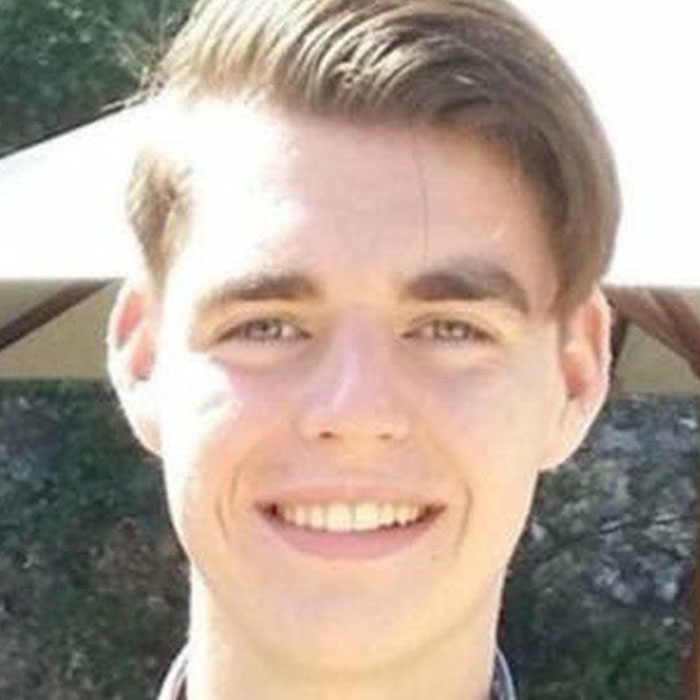
A life cut short
Oliver was part of the England development football squad and training to become a Paralympian. Paula says he was a natural leader and became a prefect at school. He attained several GCSE and BTEC examinations. He had a wicked sense of humour. He never failed to light up a room with the sound of his laughter.
“Up until that last year of Oliver’s life, life was going really well for us as a family,” says Paula. “We were just living this life until it all went wrong.
“Oliver wanted to be the same as everybody else, but he was aware that these seizures were happening and it made him different. And he knew, because he was fully conscious, that it would affect his wellbeing. It would affect how he thought and how he spoke – and it really had such an impact on his life. The behaviours around seizures were so poorly understood – and by that I don’t mean he was aggressive, but he was anxious.”
Oliver McGowan Mandatory Training
Oliver’s Campaign is all about raising awareness and teaching health and care staff about these behaviours – that people with intellectual disabilities, autism and epilepsy can behave differently.
“People need to really understand what’s going on – and rather than seeing people as behaviour, it’s actually a part of seizure activity. I think that it is so poorly understood,” Paula says.
The Oliver McGowan Mandatory Training has now been rolled out across the NHS and Paula is campaigning to see it introduced in schools.
“I started a petition just before Christmas, which gained 70,000 signatures that was debated in parliament,” she says.
“Just before Christmas I was given about 48 hours to go in an aeroplane back to England,” she says, “because I feel so passionate about this. I went back home for a month, came back here and had another meeting with parliament over Teams.
“Our schools need training on understanding seizures, especially seizures that are less common. I would like to see training being designed and delivered alongside people who experience seizures. It is essential that teachers learn about epilepsy, directly from those who have it.”
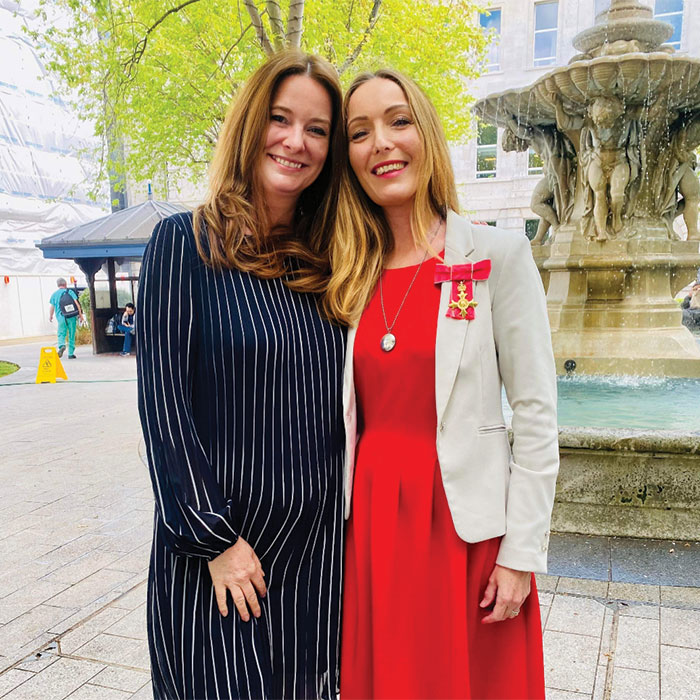
Joining Epilepsy Action
Paula was invited to become an ambassador for Epilepsy Action earlier this year and the charity is thrilled to have her on board. In June 2021, she received an OBE in recognition of her outstanding service to people with autism and intellectual disabilities. She is also a patron and ambassador for several charities and organisations.
Speaking about what she wants to achieve with Epilepsy Action, Paula says: “As a charity, it is what Epilepsy Action does best – raising awareness, education, improving and saving lives. It is about making a difference for everyone who has epilepsy, their families and carers.
I would like the charity to be more visible and accessible to the public and all professional services.
“I would also like to see the epilepsy charities more joined up and speaking with each other – that would give a lot more strength and power.”
Paula’s work is also going international, as she uses her platform in Australia to influence leaders there. But she’s also made waves closer to home in Ireland and Jersey.
“I’ve spoken to the Australian Royal Commission,” she says. “We had a lot of similar problems over here to the inequality of people with intellectual disabilities and they asked me to be one of their main witnesses. That was massive. I’m doing my bits of meddling over here as well.”
Far from being a challenge to her campaign, living in Australia has actually allowed Paula to expand her work.
“I live in a place called Newcastle,” she says. “When I got the OBE, all the kids in the school and the teachers organised a Queen’s tea party for Mrs McGowan.
“If I had been living back home in the UK, I couldn’t have done a day job. I couldn’t have been able to teach, because as soon as the UK wakes up I’m in meetings. Because I’m here, and we’re at opposite ends of the day, I can do my job. I come home and then I do all the paperwork with NHS England and then I do all the meetings. So, it affords me to do both.”
Meanwhile, she’s also been battling cancer. “I did this all through an advanced cancer,” she adds. “I’d be sat in my chair having my treatments and I’d be still doing it.
“I believe Oliver is behind me. I feel him pushing me in the direction. Sometimes when we come across obstacles, so many people have said to me: ‘You will never get this, you’ll never achieve it, it’s never going to happen, we’ve been trying for years on years.’ And, I just kept so focused, but I could feel Oliver the whole time saying: ‘Keep going mum, keep going.’ And that’s what’s kept me going.”
Find out more about Oliver’s Campaign and The Oliver McGowan Mandatory Training on Learning Disability and Autism at www.olivermcgowan.org
More articles
